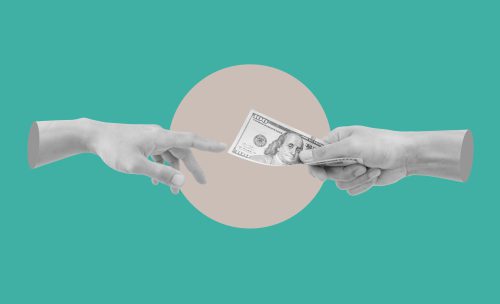 This article is the twelfth in a series analyzing the Unified Patent Court (“UPC”). It focuses on the provisions of the Agreement on a Unified Patent Court (“UPC Agreement”) and on the Rules of Procedure of the Unified Patent Court (“RoP”) dealing with the issue of award of damages (Articles 68 and 72 UPC Agreement and Rules 125 to 144 RoP).
This article is the twelfth in a series analyzing the Unified Patent Court (“UPC”). It focuses on the provisions of the Agreement on a Unified Patent Court (“UPC Agreement”) and on the Rules of Procedure of the Unified Patent Court (“RoP”) dealing with the issue of award of damages (Articles 68 and 72 UPC Agreement and Rules 125 to 144 RoP).
The UPC is a new international court to oversee patent disputes—the UPC will provide a single jurisdiction in Europe, eliminating the need for litigation in different countries. Ultimately, it should increase legal certainty by establishing harmonized case law on patent infringement and validity. A further advantage of the UPC relates to the award of damages: with a single proceeding it is possible to obtain compensation for damages in all Member States (24 countries potentially), which is simpler (only one law will apply) and less expensive than undertaking a different lawsuit in each country.
Below we briefly analyze the substantive and procedural rules that govern the award of damages before the new Unified Patent Court.
Substantive law
With regard to substantive law, Article 68 UPC Agreement lists the principles expressed in Enforcement Directive 2004/48, with however some peculiarities.
This provision differentiates between two types of infringers: (i) those who have knowingly infringed or who have had reasonable grounds to know of the infringement; and (ii) those who did not knowingly, or with reasonable grounds to know, engage in the infringing activity.
In the scenario described under point (i) above, at the request of the injured party, the UPC has the power to order an infringer who has infringed a European patent with unitary effect, a European patent, or a supplementary protection certificate to pay the injured party damages appropriate to the harm actually suffered by that party as a result of the infringement.
As further explained by Article 68 para. 2 UPC Agreement, the rationale is that “the injured party shall, to the extent possible, be placed in the position it would have been in if no infringement had taken place.” This means the infringer shall not benefit from the infringement; at the same time, damages shall not be punitive.
With regard to calculation of damages incurred by the infringing party, Article 68 para. 3 UPC Agreement states that the UPC must take into account all appropriate aspects, including (a) the negative economic consequences, including lost profits, that the injured party has suffered (this method may be best suited to situations in which the injured party is in a position to prove damages, e.g., because it could have made the infringer’s sales); (b) any unfair profits made by the infringer; and (c) in certain cases, elements other than economic factors, such as moral prejudice caused to the injured party by the infringement (perhaps most obviously damage to the image or reputation of the injured party).
Alternatively, upon considering all appropriate aspects (see let. (a)–(c) above), the UPC may determine damages as a lump sum on the basis of elements such as the amount of royalties or fees that would have been due if the infringer had requested authorization to use the patent in question.
Turning to point (ii) above (i.e., the case of an infringer who did not knowingly, or with reasonable grounds to know, engage in the infringing activity), according to Article 68 para. 4 UPC Agreement, the UPC may order only recovery of profits or payment of compensation.
The UPC Agreement is silent on interpretation of the knowledge criterion. Indeed, some commentators look to Article 4 of Council Regulation (EU) No 1260/2012 of 17 December 2012 implementing enhanced cooperation in the area of the creation of unitary patent protection with regard to the applicable translation arrangements to shed light on that criterion. The provision states that in a case in which the alleged infringer is a small or medium-size business, a natural person, a nonprofit organization, a university, or a public research organization, the UPC will take into consideration whether the alleged infringer acted without knowing or without reasonable grounds for knowing that it or they were infringing the European patent with unitary effect before having been provided a translation.
Finally, Article 72 UPC Agreement establishes a limitation period: actions relating to all forms of financial compensation may not be brought more than five years after the date on which the applicant became aware, or had reasonable grounds to become aware, of the last fact justifying the action. Italy is in line with this provision of the UPC Agreement. However, other countries have different limitation periods (i.e., Germany has a limitation period of three years from the end of the year in which the patentee became aware of the infringement). These differences will have to be considered and may influence litigation strategies.
Procedural law
For clues about procedural issues, we now turn to the RoP, and specifically Chapter 4 devoted to rules concerning the procedure for determining damages and compensation.
In a nutshell, the UPC may only order payment of damages or compensation if requested by the winning party.
The amount of the damages may be stated in an order in the infringement proceedings or determined in separate proceedings after the infringement.
In the latter case, the winning party must file an application for the determination of damages no later than one year after the final decision on the merits is issued (including any final decision on appeal) on both infringement and validity.
An application for determination of damages may include a request to lay open the defendant’s books. Indeed, damages may be calculated based on submissions from parties or on the defendant’s books. The UPC Agreement and RoP provide an order to open books that the losing party may resist, thus triggering a UPC decision on the request (after which the procedure for the award of damages shall continue).


